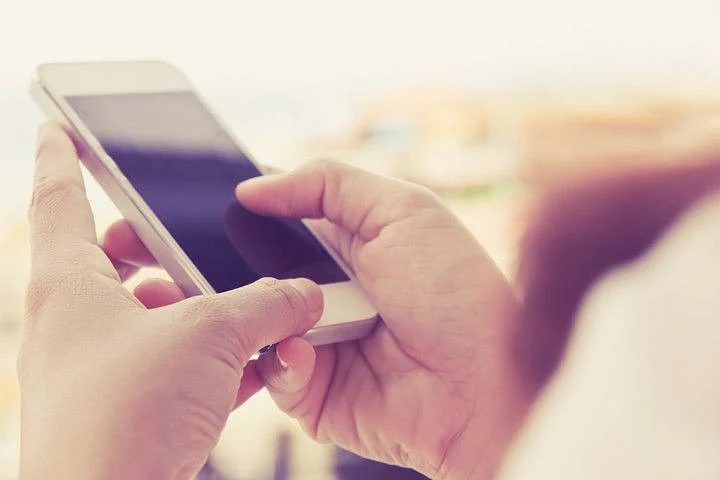DUBAI: Cellphones of health professionals could be reservoir of deadly pathogens, according to the findings of a study presented in Dubai on Monday.
This startling revelation was made by a leading researcher in the field of molecular genetics during the Fourth UAE Biosecurity Conference hosted by the Ministry of Climate Change and Environment (MOCCAE) on Monday.
Dr Lottti Tajouri, associate professor at the Faculty of Science Medicine at Bond University, Queensland, Australia and member of Dubai Police Scientists Council said they collected samples from 16 mobile phones of healthcare workers in Australia as part of a study aimed at investigating microbial contamination in a hospital settings.
“The findings were shocking to say the least. Within a small size of just 16 phones, we found 814 bacteria including superbugs, 203 viruses, 67 fungi and eight protists. These pathogens can cause Healthcare Associated Infections (HAIs) ranging from minor complaints to life-threatening illness. If this were not bad enough we also 1,092 microbes on the surface of the cellphones. Of them, 320 were antibiotic resistant and 598 virulent factor genes,” he said.
“Health care professionals wash their hands and wear gloves but like most of us they are snuck on their cellphones. Their contaminated handsets are perfect vehicles for transmitting pathogens to patients,” said Dr Tajouri.
Describing cellphones as 10 times dirtier than toilet seats, Dr Tajouri said Dubai should come up with a plan to counter the threat posed by contaminated cellphones of visitors.
“We are talking about billions of microbes and antibiotic resistant genes coming to the city almost unnoticed due to the absence of biosecurity measures. Are we not afraid? Yesterday we were concerned. Today we are worried. Tomorrow we will be too late,” he said.
Held under the theme Towards Sustainable Biosecurity’, the two-day conference aims to highlight global best practices and address key challenges and requirements related to implementing an integrated biosecurity system.
Several biosecurity experts from the US, Canada, the Netherlands, UK, Sweden, Sudan, Japan, and Australia, in addition to local specialists and stakeholders from the government and academia are attending the event at Dubai’s Grand Hyatt hotel.
Dr Farida Al Hasani, manager communicable diseases at the Department of Health Abu Dhabi, shared her findings on the strategies for dealing with infectious and emerging diseases. “Emerging infections is an increasing global risk and the UAE is no exception,” she said describing the new infections faced by the country in the past five-years. She said the current strategy is focused on traditional diseases and UAE needs to prepare itself by enhancing surveillance for infectious diseases and encouraging innovative solutions for their control.
The conference also feature an exhibition of cutting-edge biotechnologies from the public and private sectors, as well as a discussion entitled, “Biosecurity Laboratory: Smart Ports for Better Biosecurity”, with a focus on ways to counter biohazards at the country’s entry points.
Saif Al Shara, Assistant Under-Secretary for the Sustainable Communities Sector at the MoCCAE said they were proud to host the event which he hoped would facilitate capacity-building in the vital field. “We look forward to sharing best practices in the detection and control of biological agents and devising swift preparedness and response plans that minimise human and property losses during biohazard incidents,” he said. .”
Shocking revelations
What researchers found on the 16 handsets examined for microbial contamination as part of a study
Top tips to minimize the amount of bacteria lurking on your cellphone
Highlights of the Fourth Biosecurity Conference today
1) How the Ministry of Climate Change and Environment plans to address the threat of invasive species
2) Review of high-priority agents that may be used in bioterrorism
3) Modern Biosecurity challenges and opportunities for Innovations
80 per cent of infectious diseases are caused by unwashed hands, according to medical experts
Sign up for the Daily Briefing
Get the latest news and updates straight to your inbox
Network Links
GN StoreDownload our app
© Al Nisr Publishing LLC 2025. All rights reserved.
